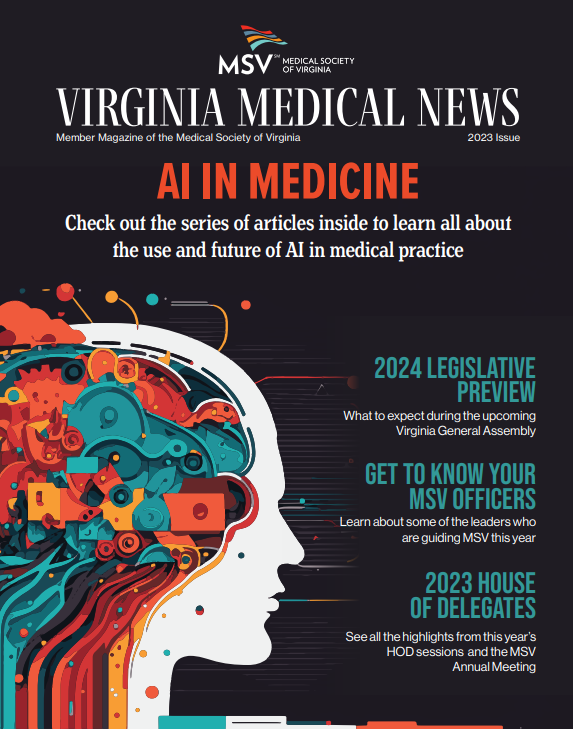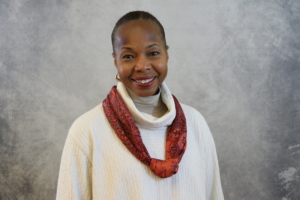Flu Shot Patient Resource: 5 Reasons to Get Your Flu Shot
BY Mary Schmidt, MD, FIDSA, MPH
Our blog this month is written for you to share with your patients.
It’s that sniffling, sneezing, coughing, aching time of year. According to the Centers for Disease Control and Prevention (CDC), seasonal influenza — or flu — activity continues to increase in most of the country. Here in Virginia, flu activity is currently moderate. Considering Virginia’s flu season runs October to May, it’s really just getting started.
With only about half of all Americans getting the influenza vaccine every year, there’s a good chance your patients may need encouragement to get vaccinated this year.
To help, we’ve put together a list of the top 5 reasons to get a flu vaccine to share with patients in your office or in your electronic and print communications.
Top 5 Reasons to Get Your Flu Shot
- Avoid missing work and school
The flu shot can prevent you from getting symptoms of the flu. It’s not a guarantee, unfortunately, but it does prevent millions of people from getting the flu every year — and you could be one of them. If you don’t get the flu, that means no lost income from lost workdays. No using PTO. No missing school. And no medical expenses from doctor or hospital visits.
- Get Less Sick
Yes, you can still get the flu even if you get the flu shot. But with the shot, you have a higher likelihood of not getting as sick as you would without it. That can simply mean a quicker, easier recovery before you’re back at it. More seriously, getting less sick can also mean less chance of hospitalization, a lower risk of going to the intensive care unit, and a lower risk of dying from the flu.
- Protect Everyone in Your Community – Especially Newborns and Older Community members!
As a pregnant mom, getting the flu shot not only protects you, it also helps protect your infant from the flu in the first few months after they’re born — when babies are too young to be vaccinated for the flu themselves. Getting a flu shot also means you can help protect your parents, grandparents, and older community members you interact with throughout the day.
- Save Your Child’s Life
Shots can be scary for our kids, but the flu vaccine (can be a nasal spray) can literally save your child’s life. Not only does the flu shot reduce hospitalizations and emergency department visits for children with the flu, it actually can significantly reduce a child’s risk of dying from the flu. In fact, a 2022 study showed the flu vaccine can reduce a child’s risk of severe life-threatening flu by 75 percent — and that’s nothing to sneeze at.
- Protect Friends, Family & Others
If you’re better protected against the flu, there’s less chance you’ll transmit it to your friends, family, coworkers, and others around you. If you get sick, you’re not only putting the health of others at risk, but people who are more vulnerable to serious flu illness — including babies, young children, pregnant women, people over age 65, and people with certain chronic health conditions like asthma, heart disease, diabetes, and more — are at even higher risk for serious complications and even death from the flu.
Even though the flu season has already started, it’s never too late to get your flu shot to protect yourself, your family, and your community!


 Alice Coombs, MD, MPA, FCCP of Richmond, Virginia was installed as the fourth female and first black president of the Medical Society of Virginia (MSV) at the organization’s Annual Meeting on October 14, 2023, at Hilton Norfolk The Main. Dr. Coombs is a Board-certified Critical Care Specialist, Anesthesiologist, and Internist. She has been actively practicing medicine for more than 35 years in both Private and Academic settings.
Alice Coombs, MD, MPA, FCCP of Richmond, Virginia was installed as the fourth female and first black president of the Medical Society of Virginia (MSV) at the organization’s Annual Meeting on October 14, 2023, at Hilton Norfolk The Main. Dr. Coombs is a Board-certified Critical Care Specialist, Anesthesiologist, and Internist. She has been actively practicing medicine for more than 35 years in both Private and Academic settings.
